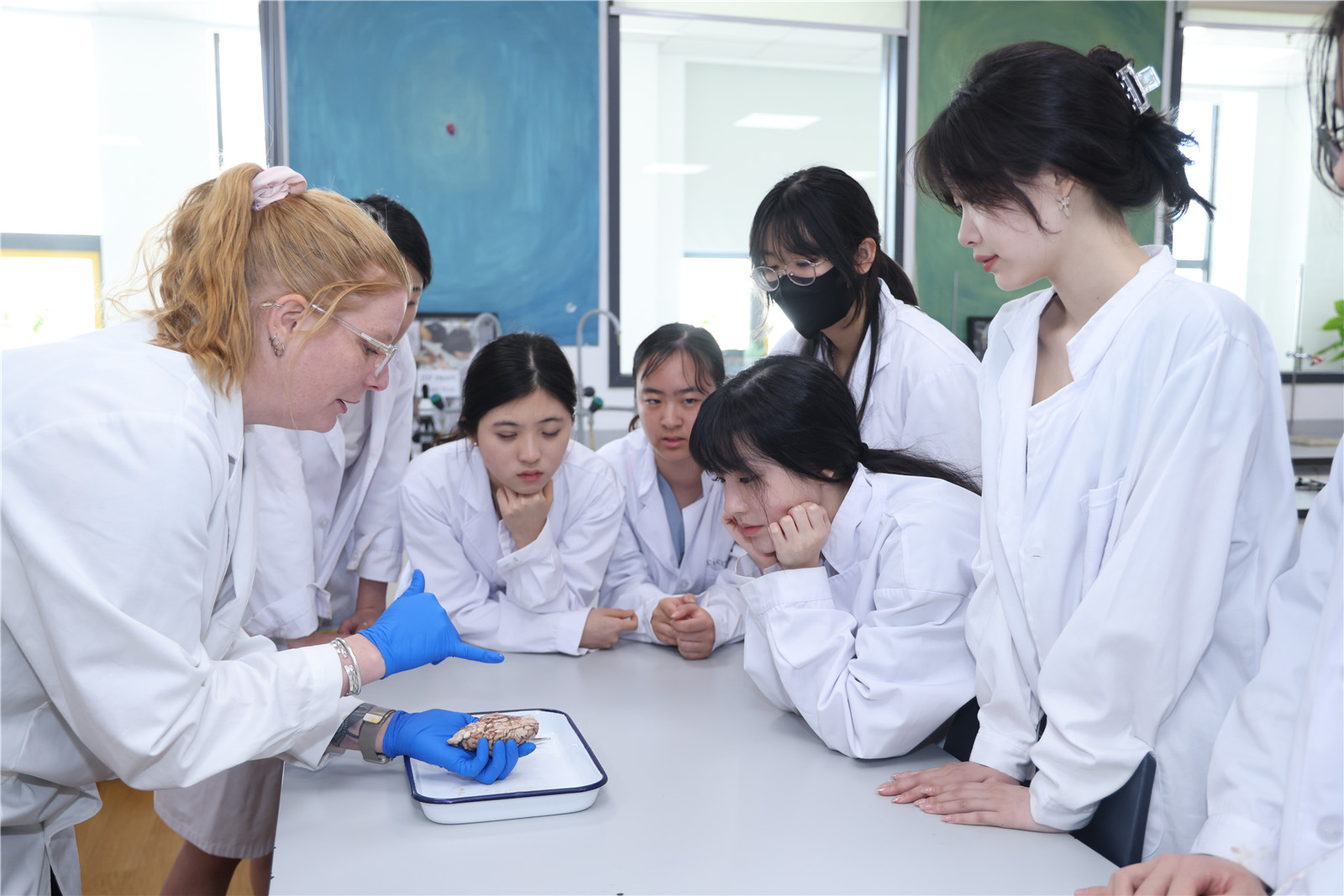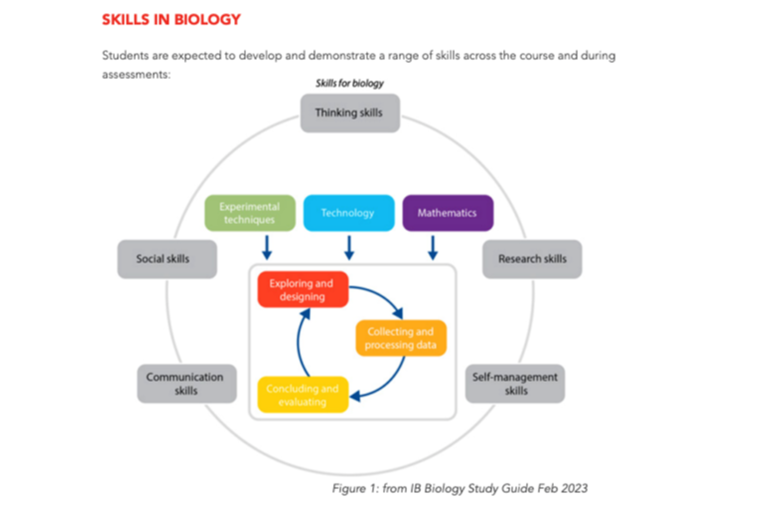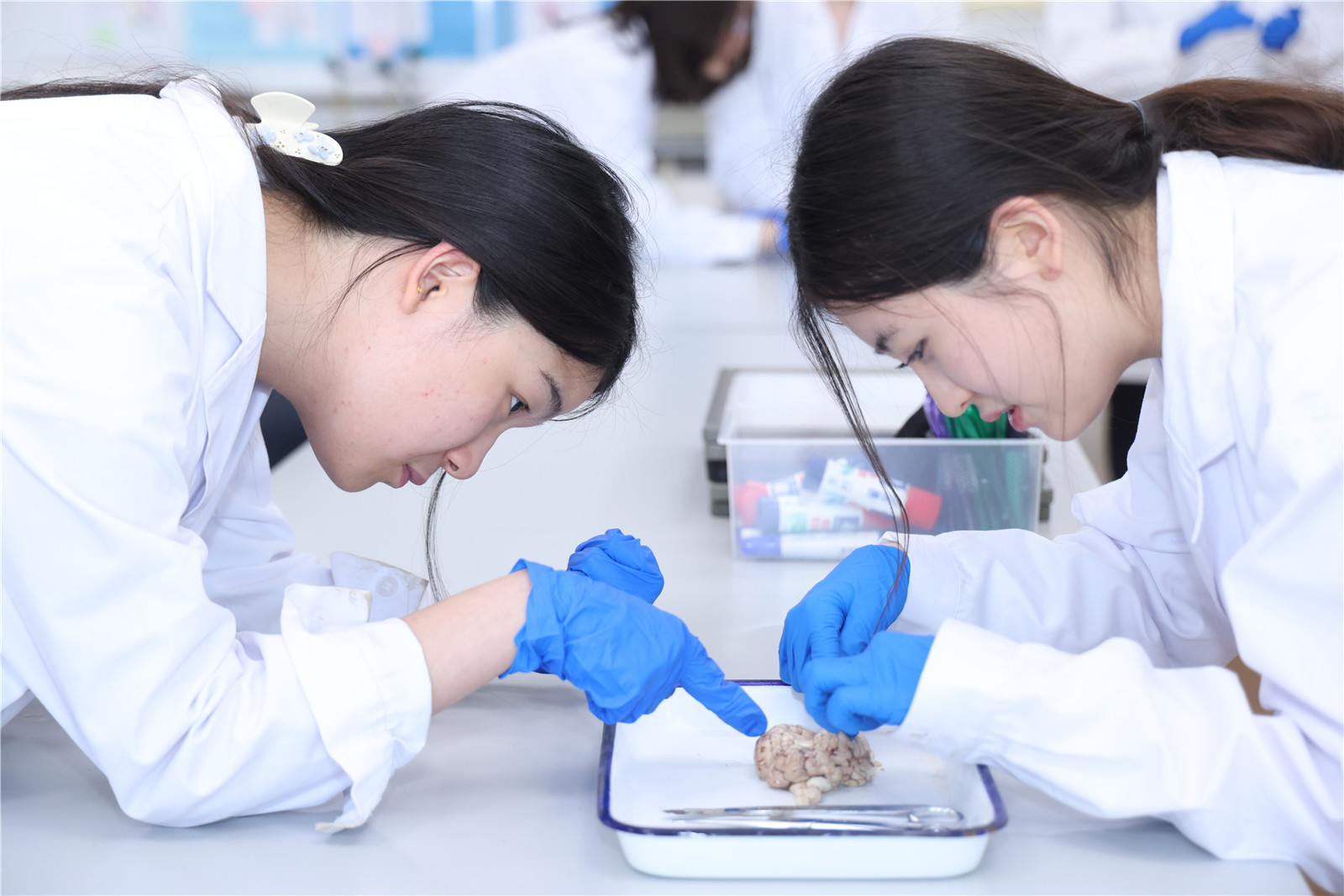How We Learn Biology at Dulwich College Beijing’s Senior School

Biology, the study of living organisms and its life processes, is a vital subject that helps students understand the world around and beyond them.
In Senior School, Biology is taught as part of a modified version of the English National Curriculum in Key Stage 3 (Years 7 to 9), and as a standalone subject in IGCSEs (Years 10 to 11) and the internationally renowned IB Diploma programme (Years 12 to 13). And just like the rest of our subjects here at DCB, the curriculum is tailored to suit the needs of our diverse student body. Throughout their time here at DCB, students engage with Biology in increasing depth, starting with smaller doses in earlier years as part of a general Science subject and progressing to more advanced topics as they grow older, with the option to specialise later on to nurture their fascination with life and its development.
At DCB, we believe that in order to foster a deep and lasting understanding of any subject, our students’ learning needs to go beyond the conventional syllabus. Biology, in particular, is about exploring life processes, the natural world, and the interactions between organisms and their environment, and we encourage our students to take that exploration further by fueling their curiosity through learning that is engaging, relevant, and hands-on.
Learning Biology
From Year 7 onwards, our Science curriculum focuses on three key subjects: Biology, Physics, and Chemistry. During Key Stage 3 (Years 7 to 9), students study each subject for one term, revisiting and building upon their learning until Year 9.
Year 7 will be our students’ first time to encounter a standalone Biology subject. While acquiring foundational knowledge is essential, the primary focus is cultivating curiosity and developing the skills needed not just to learn, but to learn how to learn. This helps students gain confidence and develop the skills needed for greater independence in Key Stages 4 and 5.
As an international school committed to student-centred learning, DCB’s Key Stage 3’s enhanced English National Curriculum supports the development of both key foundational knowledge and critical thinking. Students are encouraged to problem-solve, produce rational explanations, build models, and take their learning further through various student enrichment activities.
Some of the key skills our students learn include:
- Learning to ask questions and develop lines of enquiry based on real-world observations.
- Making predictions using scientific knowledge and understanding.
- Paying attention to objectivity, accuracy, precision, and reproducibility through experimental skills and investigations.
- Emphasising the importance of using appropriate techniques, apparatus, and materials during fieldwork and laboratory work, focusing on health and safety.
- Applying mathematical concepts and presenting or interpreting observations and data using appropriate methods, including tables and graphs.
These skills are crucial as students advance to IGCSE in Key Stage 4 (Years 10 to 11) and continue to Key Stage 5 (Years 12 to 13), where they study these subjects more thoroughly throughout the year, depending on their chosen options. In Key Stage 4, students choose between two pathways: the Double Pathway (Pathway A), where they study two sciences, or the Triple Pathway (Pathway B), where they study all three. This provides flexibility for students to receive either two or three IGCSE certificates, preparing them for the IB Diploma Programme or, starting from Academic Year 2025-2026, the A Levels, in greater depth as part of a High-Level Science course or as standard subjects in the IB.

Students continue developing skills such as their organisational, manipulative, and interpersonal skills, alongside learning the required content in each discipline, throughout both the IGCSE and the IB, that will also help prepare them for life in university and after.
Beyond the Classroom: Real-World Application of Biology
DCB students don’t just retain what they’ve learned in the classroom; they actively apply it in real-world situations and beyond. For example, in 2022, DCB student Ethan Z reached the final round in the prestigious research-based competition S.T. Yau High School Science Award for his study In Silico Method for Determining Cancer Diagnosis from Patient Blood. This year, Year 13 student Susie Y earned a bronze award in the same competition for her innovative submission, Tableware Jitter Elimination Technology for Parkinson’s Patients. These achievements not only highlight our students’ knowledge but also reflect their drive to find solutions, embodying our ethos to “Live Worldwise.”
At Dulwich College Beijing, students, guided by their teacher-mentors, can explore their interests through a variety of student-led co-curricular activities, such as SciTech, The Eureka Science Project, and the Biology Olympiad. Another unique CCA that combines the sharing of biological knowledge with active citizenship is the Women’s Health and Menstruation (WHM) CCA. The student-led WHM reaches out to young women in less privileged areas, aiming to help them better understand their biological processes, particularly menstruation, and the importance of using the right products for menstrual health. In addition, the group organises fundraising efforts to donate menstrual pads and other essential health items to those in need.
We also have several female students who actively take part in Girls in STEMM, an initiative designed to encourage and empower female students to pursue interests and careers in fields traditionally underrepresented by women, such as science, technology, engineering, mathematics and medicine.

At Dulwich College Beijing, our approach to Biology education goes far beyond the classroom, fostering not only a deep understanding of the subject but also the skills and confidence our students need to thrive in a rapidly changing world. From early curiosity-driven lessons to advanced, real-world applications, we empower our students to explore, question, and innovate. Through our dynamic curriculum, inclusive initiatives like Girls in STEMM, and interdisciplinary programs like SE21, we ensure that our students are not only prepared for future academic challenges but are also equipped to make meaningful contributions to society. At DCB, biology is not just a subject—it’s a way to understand the world, solve complex problems, and ultimately, live Worldwise.








